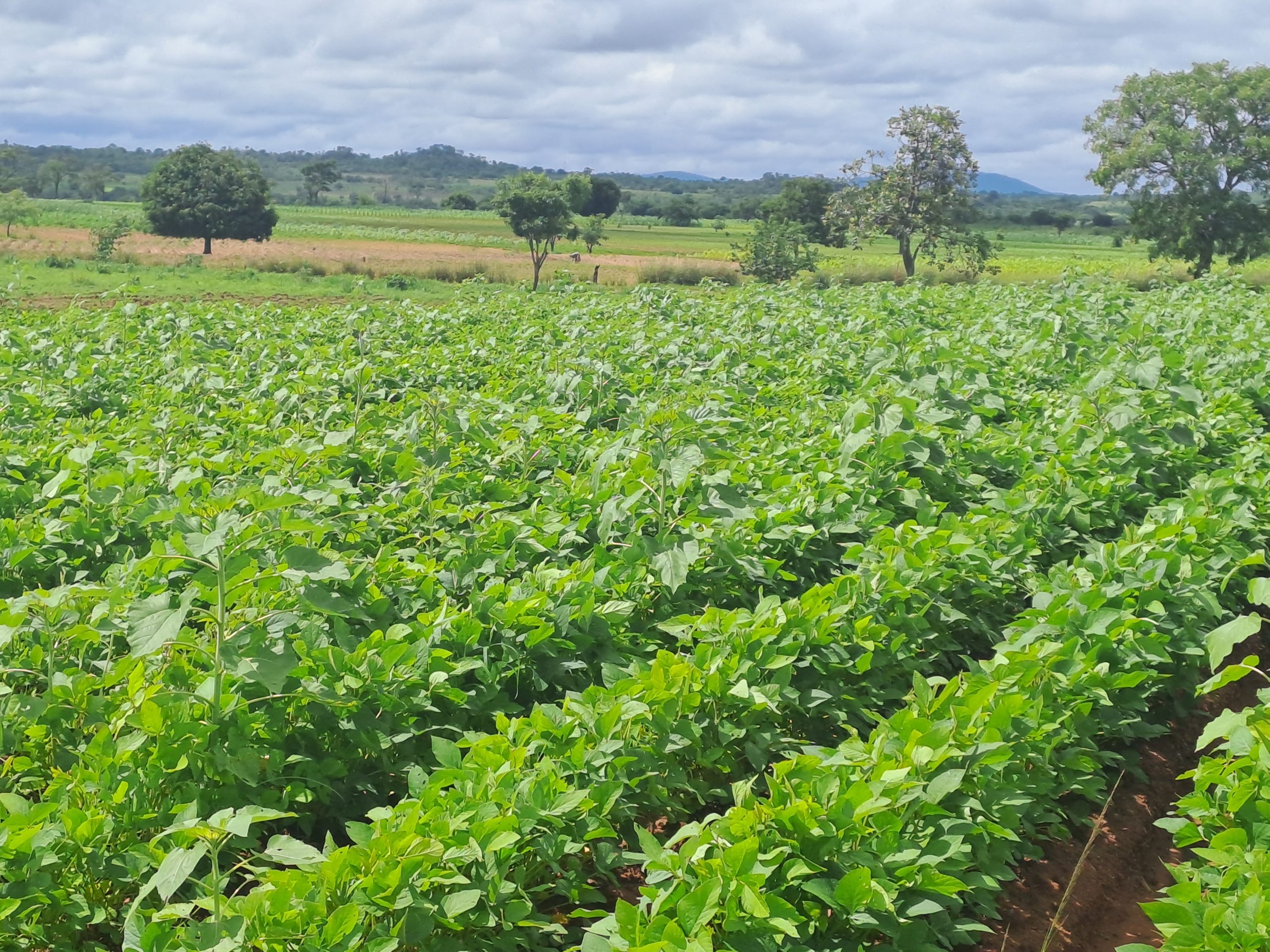For Malawian farmers Monica Levison and Liden Mbengo, the 2023-24 cropping season posed distinct challenges compared to prior years. Like many of their fellow smallholders, they grappled with the El Niño-induced drought, which severely impacted agricultural production across Southern Africa.
Despite these challenges, smallholders demonstrated extraordinary resilience due to crucial advisory services provided by the Southern Africa Accelerated Innovation Delivery Initiative (AID-I) Rapid Delivery Hub Project. The initiative enabled farmers to adopt climate-smart practices such as using drought-tolerant seeds and improved soil management techniques.
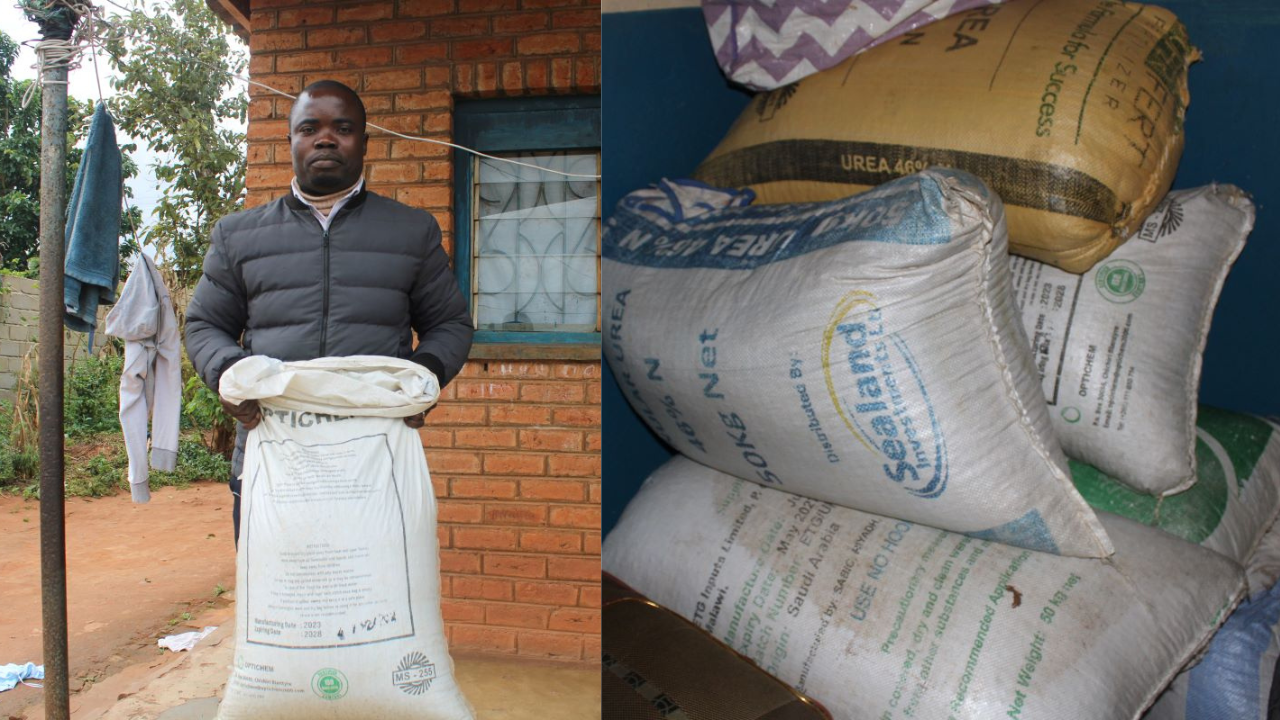
(Photos: CIAT and CIMMYT)
Connecting Farmers to Innovative Tools and Information
At the core of AID-I’s approach lies the delivery of innovative advisory services and proven agricultural technologies—strategies that have transformed the lives of farmers like Monica and Liden.
The AID-I project is transforming agriculture in targeted regions of the Democratic Republic of Congo, Malawi, Tanzania, and Zambia.
By providing smallholder farmers with critical information and innovative solutions, AID-I empowers them to enhance food production. The project focuses on strengthening legume and maize seed systems to enhance the availability and access to multi-stress-tolerant and nutritious crops. It also emphasizes delivering agricultural advisories to the last mile and improving soil health and fertilizer efficiency. These efforts are compounded with extensive training conducted by the Alliance of Bioversity International and CIAT through the Pan-Africa Bean Research Alliance (PABRA).
Seed Multiplication: A Key Entry Point for AID-I in Malawi
In Malawi, seed multiplication is a critical entry point for AID-I interventions. This approach ensures that farmers have access to high-quality, locally adapted seeds, reinforcing seed systems while supporting food security and resilience among smallholders. Through a network of demonstration plots, the initiative introduced high-demand bean varieties while showcasing modern agronomic practices, including proper planting techniques, precise fertilizer application, and effective pest and disease control strategies. These hands-on demonstrations equipped Malawian farmers with practical and sustainable methods to optimize bean cultivation, even during challenging conditions.
Monica’s Journey: From Small Harvests to Realizing Her Dreams
In Thambolagwa village, Monica had spent more than two decades growing beans only for her family’s consumption. After attending AID-I’s bean production training and receiving 2 kilograms (kg) of NUA35 seed from the demonstrations, she harvested 25 kg, significantly increasing her yield.
Building on this success, Monica planted the harvested seeds on one acre of land during the 2023-24 growing season and harvested 15 bags, each weighing 50 kg. She then sold part of her produce to Milele Agro Processing, earning over US$577.
“The training was incredibly valuable,” she said. “I’m looking forward to the 2024-25 season, during which I plan to expand my business by cultivating two acres of land. With the profits, I aim to make future investments in farming and save money to build a modern house for my family.”
AID-I Demonstrates the Power of Knowledge Through Mbengo’s Transformation
Liden, from Kang’oma Village, spent years planting four bean seeds in a single hole, unaware that this practice limited his agricultural potential. AID-I’s training introduced him to effective agronomic practices such as planting techniques, crop rotation, soil fertility improvement, and pest management as guided by PABRA.
“Following these guidelines, I harvested 15 kg of VTTT 924/4-4 and 18 kg of NUA35 from just half a kilogram of seed. In the previous year, I harvested only 3 kg after planting the same number of seeds and then nearly gave up on bean farming. The knowledge I have gained is priceless. It has reinforced my interest in bean farming and will stay with me forever,” said Mbengo.
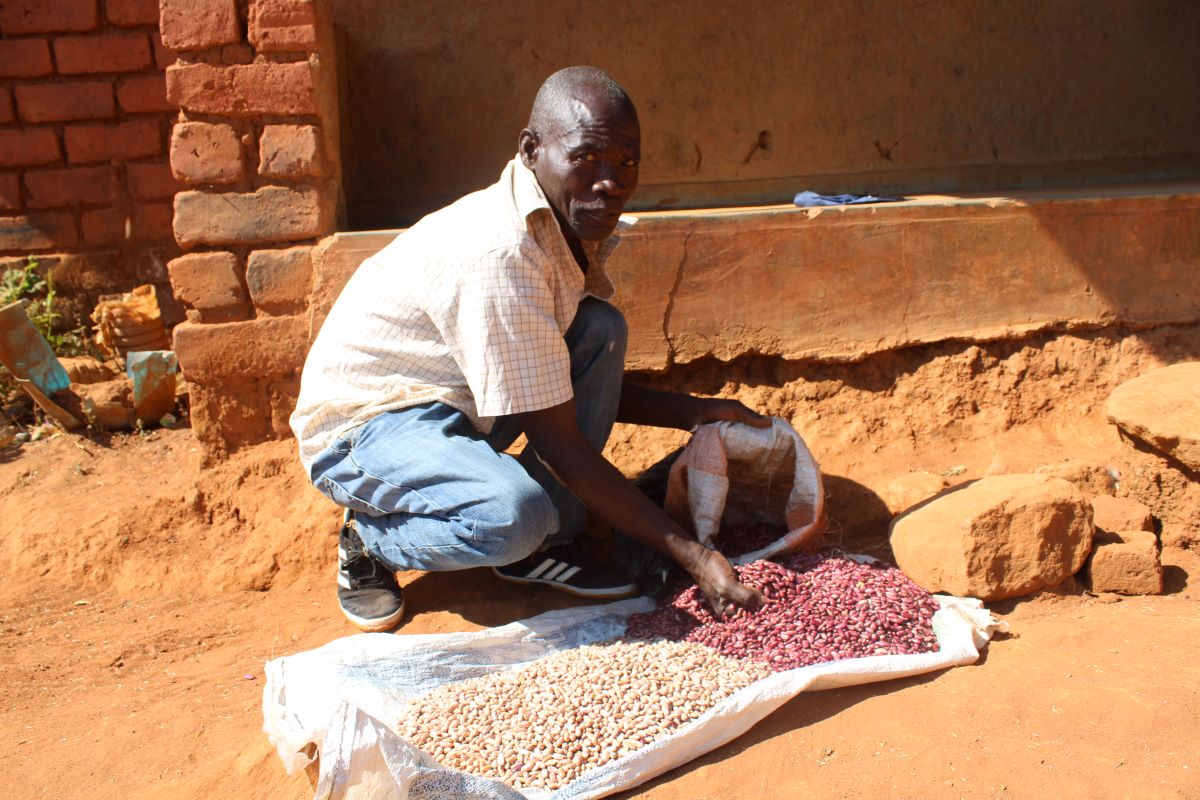
A New Era for Malawian Bean Farmers
For extension workers such as Chrissy Minjale in Ntcheu district, the AID-I program has been transformative.
“The trainings were eye-opening for both us and the farmers,” she said. “Smallholder bean farmers in Malawi are likely to experience a significant increase in bean seed and grain production in the long run.”
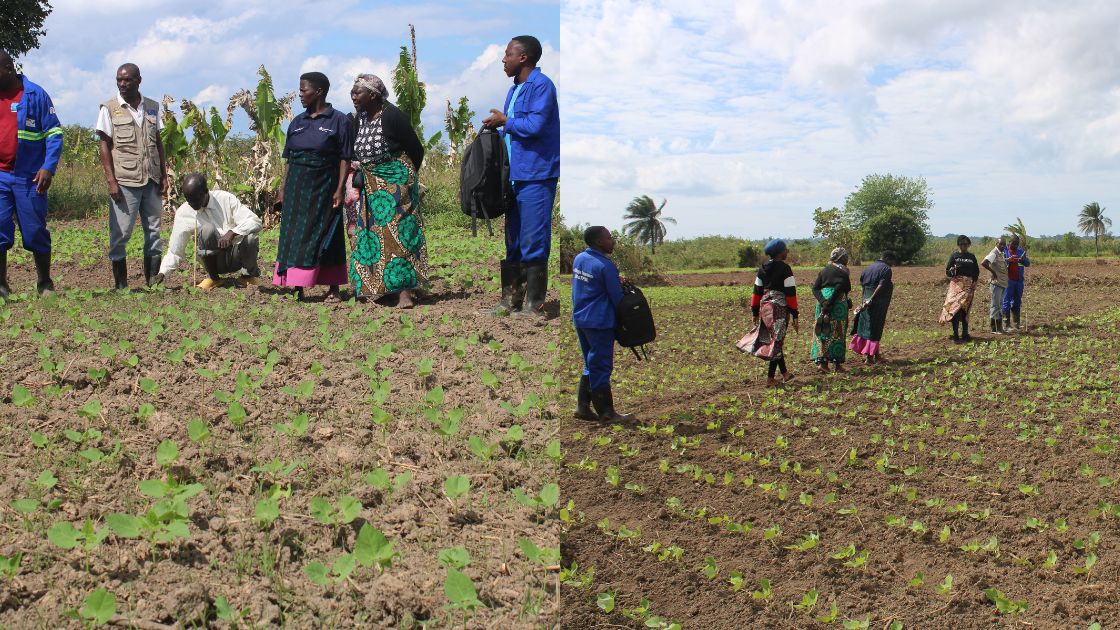
Field Learning and Adoption of Climate-Smart Practices
The program’s emphasis on linking farmers to off-takers, understanding climatic conditions, and adopting modern agronomic practices has sparked interest in bean farming across Malawi. As Yohane Nkhoma, a field extension officer in Ntchisi, observed:
“We now understand the importance of timing the first rains for beans and other crops. I’m committed to sharing this knowledge with hundreds of farmers in my area and helping them pay closer attention to the climatic conditions crucial for bean production. The results we have witnessed will encourage more farmers to engage in bean cultivation as a serious business.”
Scaling Impact: Training Thousands of Farmers
With over 11,007 farmers trained, 6,786 of whom are women, AID-I is not only improving yields but also empowering communities, building resilience, and igniting a wave of agricultural innovation.
The ripple effect of these interventions is clear. Beyond feeding their families, smallholder farmers are also paving the way for a more secure and sustainable future.
These individuals are more than beneficiaries. They are change agents whose successes inspire their communities and beyond.
As AID-I continues to amplify its impact, it is reshaping the trajectory of smallholder farming in Malawi and setting a precedent for resilience and food security across the region.
The future of farming here is thriving, innovative, and full of promise—as illustrated by Monica, Mbengo, and many more.
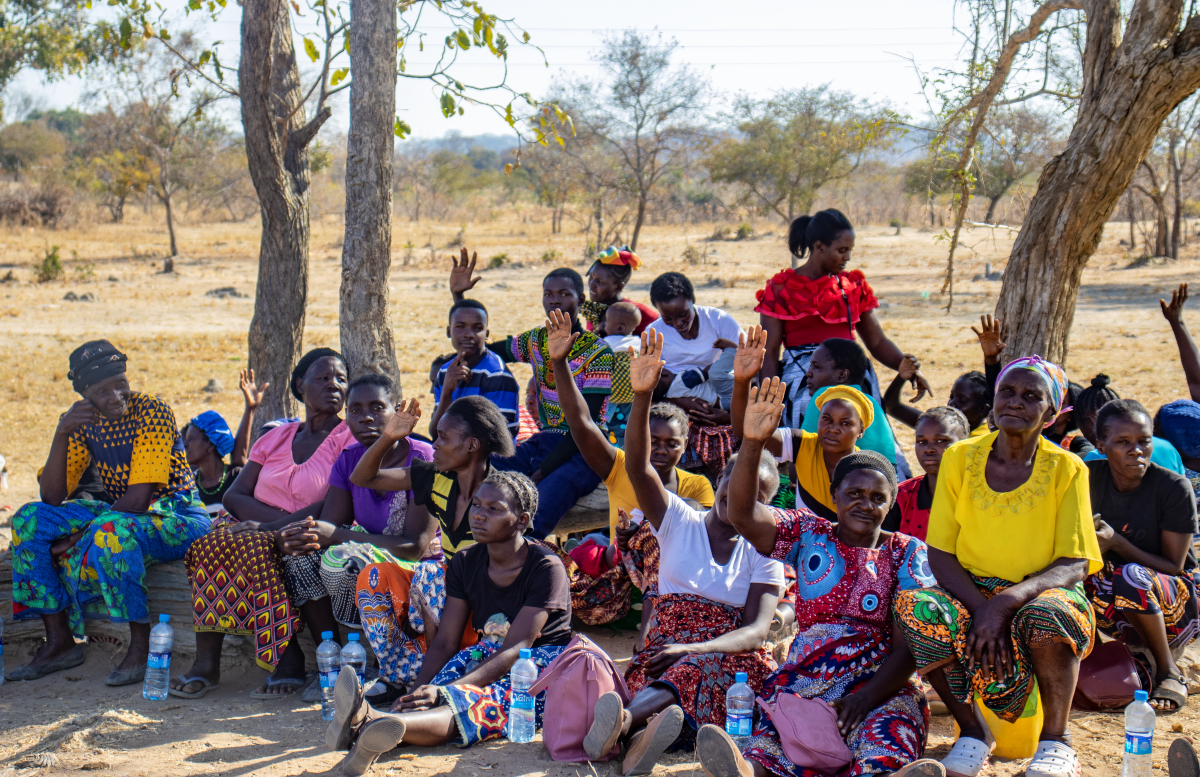
 Gender equality, youth and social inclusion
Gender equality, youth and social inclusion 